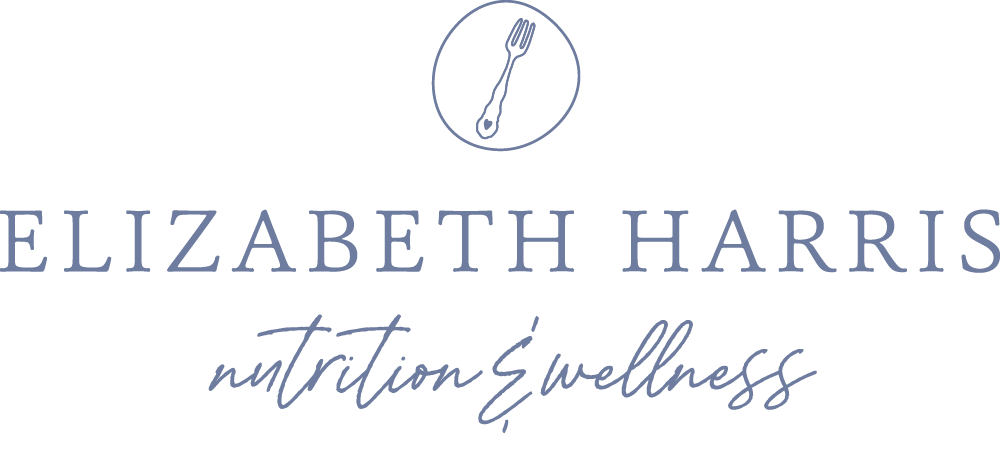4 Tools to Help You Curb Stress and Emotional Eating
Are you a stress or emotional eater?
Then read this. ⬇️
I recently asked my Health and Healing with Intuitive Eating community the most common reason they get knocked off track with food or exercise.
Stress eating came up again and again.
Why is emotional eating so common?
The prevalence of stress eating makes sense for a few different reasons. When we’re stressed, our bodies release cortisol, a hormone that has been shown to increase appetite. Research has also found that cortisol may change food preferences, making less nutrient-dense foods that are higher in saturated fat and refined carbs more appealing (hello, comfort food!).
Of course, eating can also be a distraction from whatever it is we’re feeling. Plus, our mental and emotional bandwidth may be lowered when we’re stressed, setting us up to fall back on well-worn habits even if they don’t make us feel very good. I point this out to underscore that, contrary to popular diet culture messaging, it’s normal to eat more or differently when you’re stressed.
Emotional eating in and of itself isn’t inherently bad.
And yet, if eating is your primary way of coping with stress, you do it more often than you’d like, or you do it in a way that simply doesn’t feel good, it may be time to ADD some tools to your stress and emotional eating toolbox. Building this toolbox is something we spend loads of time on in my Intuitive Eating coaching programs, but I want to share 4 key tools with you here.
4 Tools to Help You Cope With Stress and Emotional Eating
1. Consider whether dieting or so-called lifestyle changes are a cause (at least in part) of your stress.
This might look like:
Feeling constantly anxious about what you’re “supposed to” or “allowed to” eat
Running yourself ragged trying to follow strict eating protocols (or calorie limits)
Spending loads of mental energy trying to avoid specific foods or cravings or find “safe” places or things to eat
Feeling guilty or anxious when you eat certain foods or fall off the plan
If so, please know that this eating overwhelm and anxiety is a form of chronic stress that undermines health and wellbeing. But also, because this restrictive approach sets you up to feel out of control around certain foods, it often contributes to or even mimics stress eating!
This is yet another reason why learning to ditch the scarcity mindset and make peace with ALL foods is such an important piece of the Intuitive Eating puzzle.
2. Mindfulness is another indispensable tool for your emotional eating toolbox.
Cultivating a mindfulness practice is key because it can help you:
Lower stress and increase emotional regulation
Slow down and be more fully present in the current moment (a key step to putting a pause between you and the automatic habit of reaching for food)
Eat more mindfully and in tune with your body and its cues
We have an entire module on mindfulness and mindful eating in my Thrive Tribe coaching group. But, spending even a few minutes per day doing a guided meditation (there are lots of very good free ones available online or through the Calm or Headspace apps) is a great place to start.
3. Ask yourself 3 important questions when you’re stressed and reaching for food.
If you’re feeling overwhelmed due to stress and find yourself emotional eating, ask yourself these three super helpful questions:
➡️ What am I feeling? See if you can pinpoint the emotion you’re feeling and even where you’re feeling it in your body (this helps develop body attunement which comes in handy when you’re trying to tune into hunger and fullness cues!).
➡️ What do I need? Your aim is to figure out how you can cope with what you’re feeling kindly and with self-compassion. What act of helpful self-care will be most useful in this moment?
➡️ Would you please? If it’s possible, ask for help or get something off your plate by using this simple phrase.
4. Plan ahead and be prepared to handle stressful situations.
As I mentioned earlier, when we’re stressed, our mental and emotional bandwidth may be stretched thin. To avoid game-time distress, plan ahead by brainstorming stress-lowering activities you can choose from.
Write them down and keep the list somewhere safe so you can pull it out when you need it the most!
These are the types of tools I teach and the ongoing support I can offer you in my Intuitive Eating coaching programs—because HOW you eat is just as important as WHAT you eat. Want to go further and get my hands-on support to build your self-care toolbox and gain control of emotional eating? Book a free Intro to Intuitive Eating call now and let’s chat about your goals and how I may be able to help!

